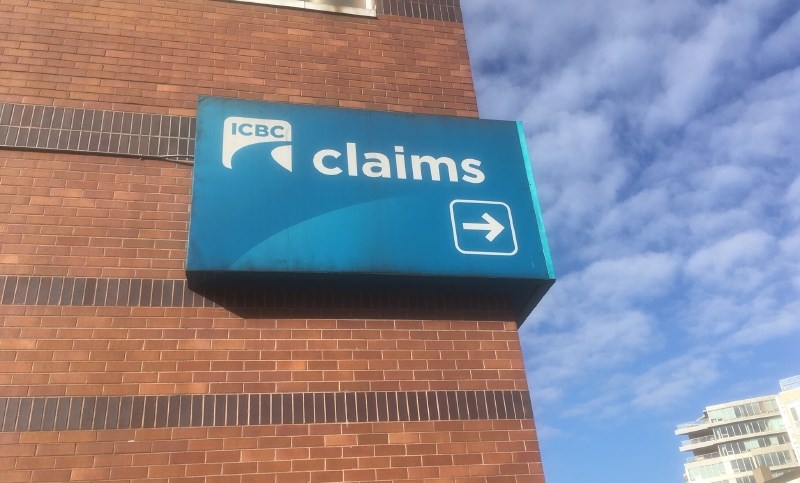B.C. drivers whose car insurance expires after Sept. 1 will soon receive renewal notices in the mail. But they won’t provide an estimated premium.
That is because ICBC is still figuring out what individual drivers will pay under a new system that more heavily penalizes those who cause collisions.
The rates will also be determined by other drivers living in the same household as the primary driver — or employees who work for the same company — and that won’t be calculated until drivers arrive at their insurance broker’s office with a list of drivers, their licence numbers and dates of birth.
Also beginning Sept. 1, optional insurance premiums will be affected by two minor convictions, such as failing to stop or yield or speeding, or one major conviction, impaired driving, distracted driving or excessive speeding.
“The whole system’s changing,” said Andrew Janzen, owner of Janzen Insurance in South Surrey and a board member of the Insurance Brokers Association of B.C. “We now have to I.D. all the drivers. The rates are going up and the system will be slower.
“It will be an adjustment because it’s totally different than the way we’ve done it for the past 40 years,” he said. “So notices to renew are going out and they won’t have a premium on it, and that’s going to be weird for some people.”
Driver’s premiums now will be based 75 per cent on personal risk factors and 25 per cent on whichever of the extra listed drivers has the highest level of risk.
“Under the new insurance model, driving experience and crash history will play a much bigger role in determining the premium you pay,” said ICBC spokeswoman, Lindsey Wilkins.
But how much more will depend on details ICBC has not yet released, except to say it will be using an individual’s “driver factor” based on the drivers’ age, experience, crash history, where they live and what they use the car for, and other listed drivers, and, for those who take out optional coverage with ICBC, any convictions.
A prototype factor calculator at ICBC.com allows drivers to determine their risk factor. One is considered neutral and the lower the number, the lower the driving risk. A 58-year-old driver with 41 years’ experience and a 32-year-old driver with 15 years’ experience, neither with any at-fault crashes, who retrieved their factors online on Thursday had similar numbers, around 0.5.
But it’s not clear how ICBC will use that factor to determine premiums. “Additional content, including driver factor details, will be made available on our website in mid-July and prior to the first renewal reminder” for Sept. 1 renewals, Wilkins said.
“Once all the changes are in place, we anticipate approximately three-quarters of our customers will be better off than today, with many seeing a decrease to their overall premiums [basic and optional],” she said.
Janzen disagrees. “I don’t think that anyone’s rate is going to come down this year,” he said.
He said it wouldn’t make good financial sense for someone renewing this summer and expecting a rate decrease Sept. 1 to take out a short-term policy until then because there are financial penalties for insuring for less than a year. He also advised not cancelling and renewing on Sept. 1 because cancellations also carry a financial penalty.
Another change on Sept. 1 is that higher premiums will be assessed against the at-fault driver and not the vehicle owner, as it is now. Janzen said this is a fairer allocation of financial consequences for crashes, but not a change that would automatically reduce ICBC expenditures.
He said that may deter owners from listing poor drivers on their insurance to prevent them from driving up their premiums.
“The last thing I want is a bad driver driving my car,” he said.
Whether or not, as ICBC promises, most drivers will eventually pay cheaper premiums remains to be seen. That’s because the largest factor driving up costs is the number and size of claims to fix vehicles and settle lawsuits.
“Until the dust settles, you can’t really say,” Janzen said.



